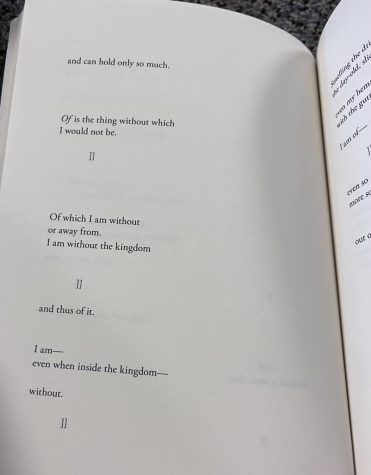Poetry Review: Customs
Graywolf Press publishes another early contender for this year’s major poetry awards

I will always argue that there is considerable value in looking into the areas and aspects of life that we find unfamiliar—or those things that we don’t even particularly like. How else to experience new worldviews and perspectives—and what better goal in life than to learn and explore? I found Customs—Solmaz Sharif’s poetry collection of this year abundant with intriguing images and ideas, though I had a bit of difficulty following each poem in and of itself. Perhaps this collection makes a nice connection back to our summer reading—Matthew Zapruder’s Why Poetry, in which I found the salient point to be that the greatest value of poetry is the moment of reading it—the emotions and the thought processes that accompany the reading of poetry, even more so than the poetry itself. Thus, Customs is perhaps even enhanced by the occasional murkiness and obscure nature of its material, as it is able to more clearly demonstrate Sharif’s thought processes and her artistic flair and ability. All of this to say that in perusing the poetry collection of a bookstore this is not what I would reach for—so I’d argue, what better collection to read and review.

I found the title of this collection perhaps most interesting—”customs,” of course, can have a number of denotations. The title Customs here, likely represents the number of poems exploring airport customs—that especially transitional place that Sharif reflects on. An Iranian American poet, in many of her poems she contemplates being away from, and being reconnected with home in airport terminals. Customs, as well, are those actions which shape our culture. Sharif, in this collection, takes care to explore both, creating a piece which is incredibly personal and profound—even to the extent that it can be difficult to follow. Perhaps, then, like the work of Emily Dickinson, this work is not for us, the audience, but for Sharif, in representing her truest self and the base of her soul.
One aspect of this collection that stood out to me was the second section, which is almost entirely composed of a 21 page poem, “Without Which” which is spaced compellingly. Stanzas are separated by two end brackets (]]) sometimes with no words in between sets of brackets. Some pages have no words at all—the page is offset only by these repeated brackets. I find that much of poetry is introspective, thoughts on the self, and a person’s individual life, but a poem such as this brings this idea even to a new level—to the point of near obscurity, for the sake of art.
Sharif’s collection further contributes to the growing pluralism of American poetry, making verse one of the most inclusive and essential responses that we have in a time too frequently characterized by insularity and close-mindedness. Some of her poems might be ambivalent about what exactly it means to be “American” as we close out the first quarter of the 21st century, but her poetic voice is certainly a welcome reprieve to the nationalistic prattle that often takes center stage.
Customs is published by Graywolf Press and can be purchased at bookshop.org.




















